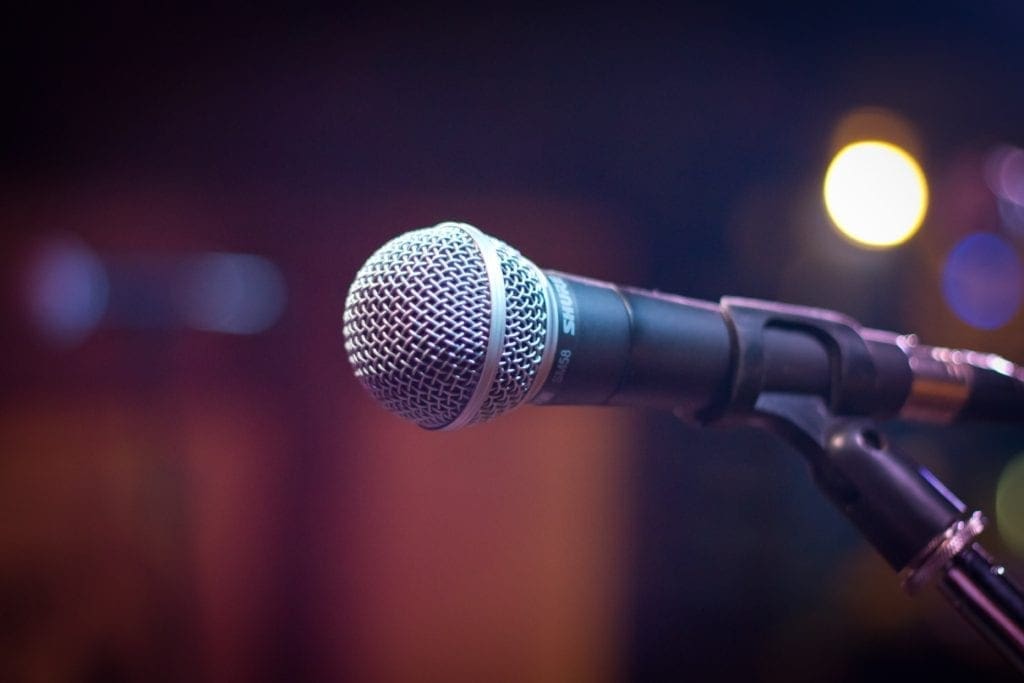Hip-hop’s influence on American culture is undeniable. From clothing lines to dance styles, hip-hop has left a profound mark on many aspects of American life.
Originating in the South Bronx during the 1970s, hip-hop gradually became a creative outlet for disgruntled African American youth in urban centers. This budding music genre gave many impoverished African Americans new opportunities to build wealth and provide value to their troubled communities.

With time, hip-hop established itself as one of the most dominant musical genres in American culture. What seemed like a blooming vehicle for escaping poverty and bucking conformism, hip-hop culture became mired with the same problems that undermined the Civil rights movement.
The Ideological Decay of Hip-Hop
Identity politics, socialist advocacy, and disdain for free markets have become the norm throughout hip-hop circles across the nation. From underground rappers like Immortal Technique to commercial giants like Jay-Z, rappers throughout the industry have become apologists for or have at least flirted with socialist causes at certain points of their career. With the meteoric rise of outrage culture and identity politics, many rappers such as T.I. have latched on to national trends like Black Lives Matter and have become cultural mouthpieces for progressive causes.
Lost in this lurch towards progressivism is how capitalism made rap relevant in the first place. Those recording studios and fancy instruments didn’t just finance themselves. All the necessary inputs to make a rap song and promote a record label require substantial capital to pull off. Unfortunately, this inconvenient fact is lost on many misguided hip-hop artists and commentators in the space.
Instead of using their positions of power in the market to improve the lives of others, many rappers have perpetuated the “statist quo” by turning to victim hustling and supporting the very same political agents whose policies have kept countless blacks down. When someone dares to question the political correctness narratives many rappers espouse, they instantly get vapid labels such as “racist” or “white supremacist” slapped on them.
One of the most notable cases of this was when Talib Kweli recently smeared Tom Woods for supposedly being a “Nazi” and “racist” due to his libertarian beliefs. The irony is that the policies Tom Woods advocates for—free markets and the abolition of the police state—would actually help the African American community. This is in stark contrast to the policies of the politicians like Bill Clinton—who spearheaded mass incarceration in the 1990s—who Talib Kweli holds in high esteem.
Several Glitches in the Matrix
That being said, hip-hop has had its fair share of disruptive moments.
Although ideological consistency has never been his strong suit, Kanye West did raise interesting points during his tweet storms on the state of minority politics in America. For a brief moment, Kanye West became a glitch in the Matrix as he raised interesting points about blacks’ monolithic support for the Democrat party.
In typical fashion, the media was in an uproar over West’s comments. While West’s questions were valid, we must remember, these issues go beyond the two-party system. Civil rights leaders like Malcolm X, especially during his final years, understood that the two-party system had nothing to offer for the black community.
While most of the Civil rights movement was focused on top-down solutions like forced integration, racial quotas, and anti-discrimination laws, Malcolm X turned his focus on black self-empowerment through entrepreneurship and private initiative. Sadly, Malcolm X’s ideas died with him and the government activist sect of the Civil rights movement ended up winning out.
The rise of hip-hop did bring a glimmer of hope for minorities in its early days, but it appears to be falling down the same path of state-linguistic complex and political correctness culture that has infected other parts of society.
There are still some slivers of promise in the hip-hop community now that rapper Killer Mike signaled his support for gun rights. Given the suspect nature of government-provided policing in urban centers, expanded gun rights are a sensible alternative for many minorities. Certain organizations like Black Guns Matter have acknowledged this trend and identified a niche market to tap into as far as firearms education is concerned.
Culture Still Matters
The challenges dissenting voices in the hip-hop community face are steep. Accusations of being “right-wing extremists”, “race traitors”, or “sell-outs” have been the norm whenever any individual dares to not follow the social justice script.
This, however, does not mean hip-hop is a lost cause or should be ignored. If anything, minorities that want to see genuine political change should work to save hip-hop instead of turning to traditional political activism.
Powerful influencers in the hip-hop space tend to have more credibility than the empty suits in politics. Political figures like Barack Obama and Hillary Clinton receive considerable social proof when rappers endorse them. So it makes more sense for political reformers in the hip-hop space to focus more on building clout in their communities rather than getting involved in every-day politics. Popular culture’s impact on politics cannot be overstated.
Hip-hop has left a lot to be desired politically, but there are still avenues for opening up new discussions. This is apparent with the rise of groups such as Black Guns Matter. It would behoove hip-hop culture to avoid the toxic nature of partisan politics and use the same market mechanisms that made hip-hop relevant in the first place as a way to move forward.
State intervention is no cure for the many real problems inner-city dwellers face. Hip-hop activists would be wise to recognize this.

























